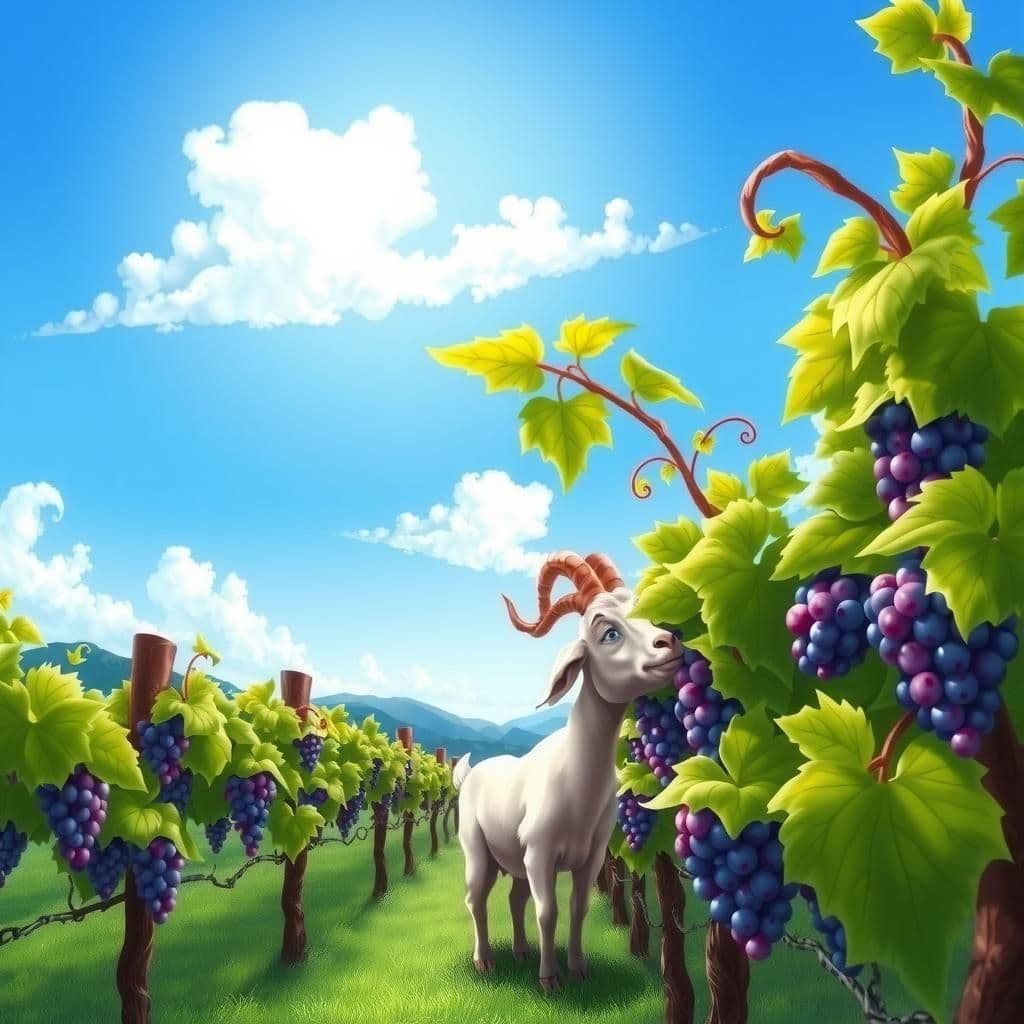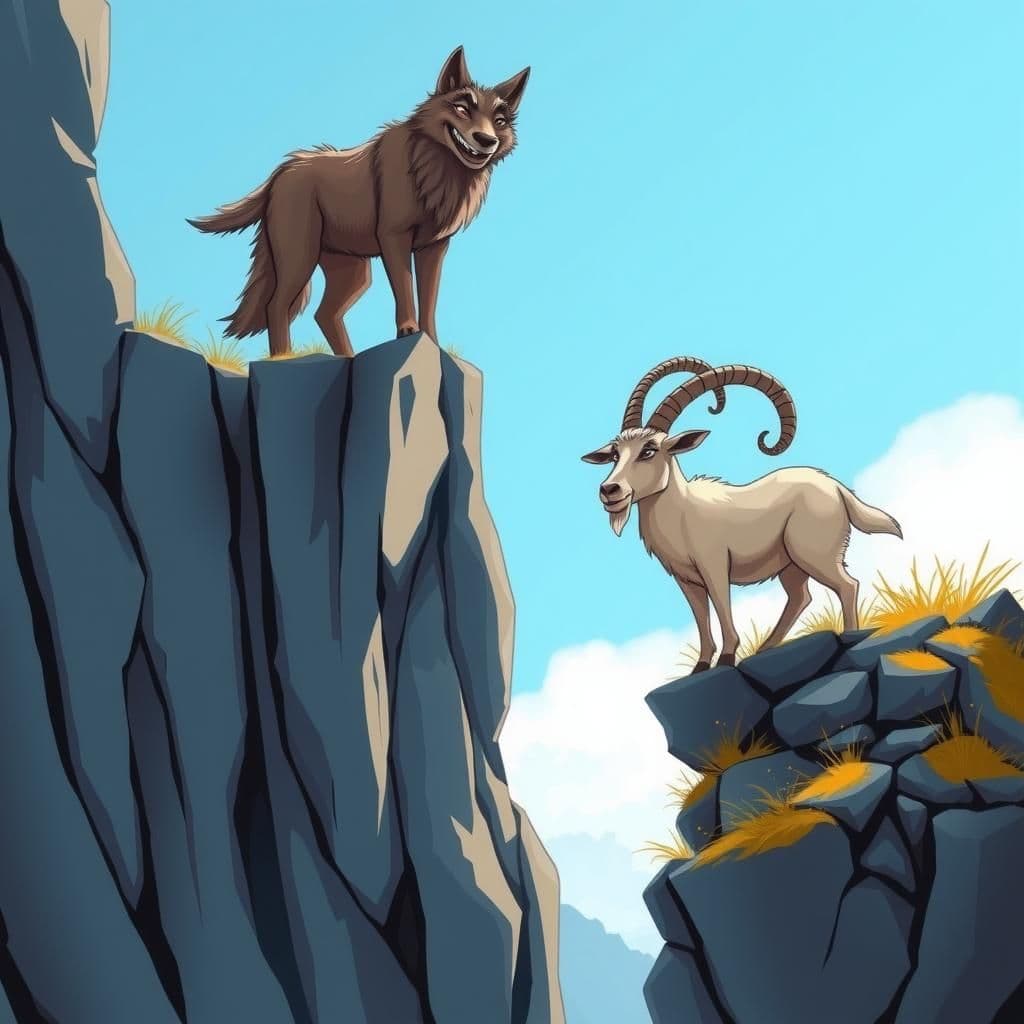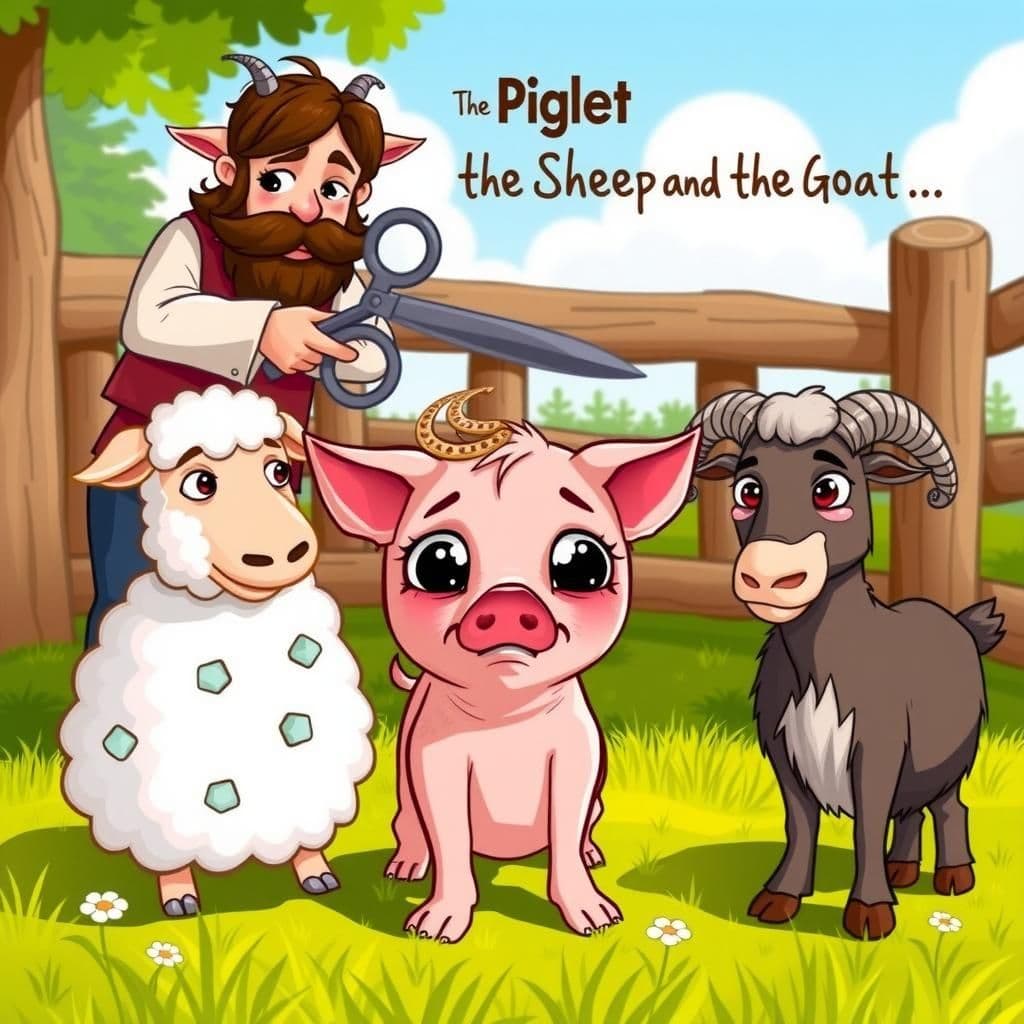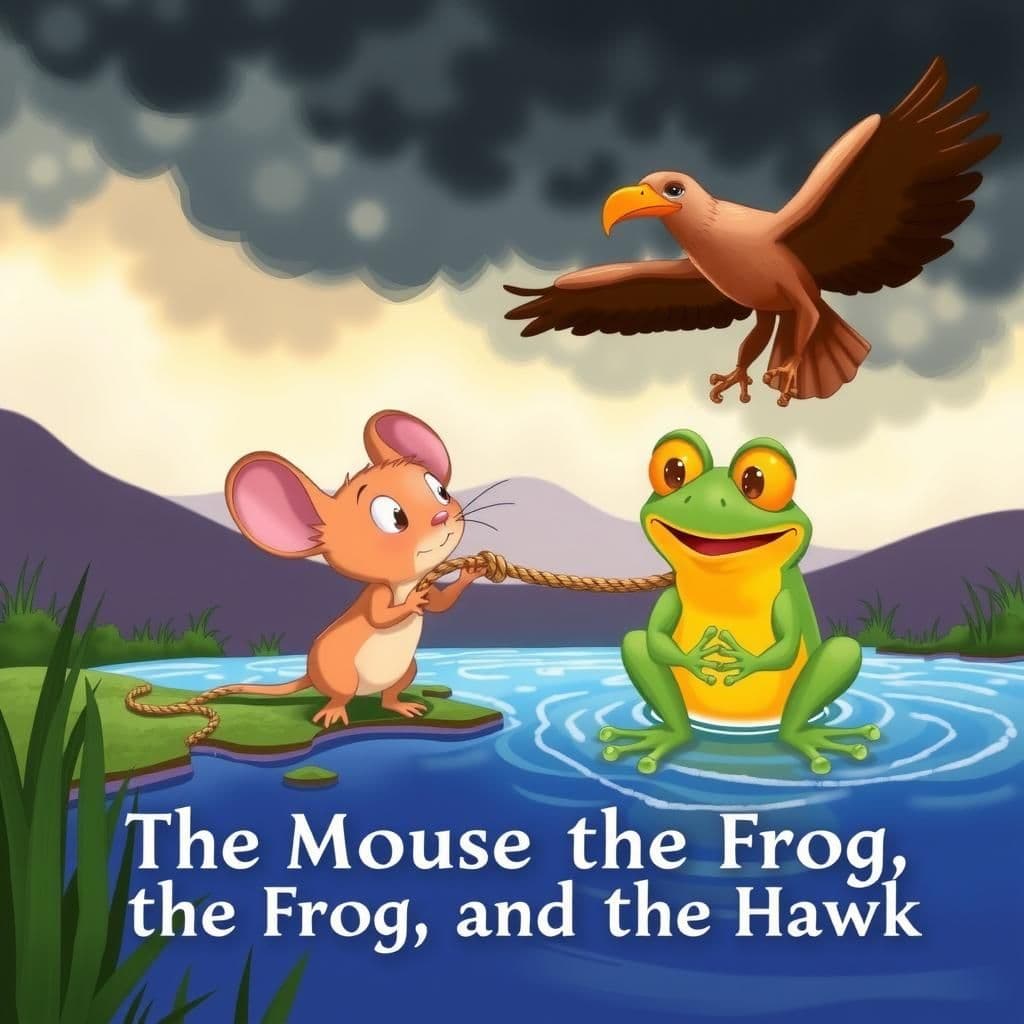The Vine and the Goat
In "The Vine and the Goat," a classic tale among famous moral stories, a Goat damages a thriving Vine by nibbling its leaves. The Vine, lamenting its fate, warns the Goat that its current actions will lead to a future where it becomes the wine poured over the Goat during its sacrificial demise. This simple moral story serves as a cautionary lesson for young readers about the consequences of thoughtless actions.

Reveal Moral
"The moral of the story is that unjust actions can lead to unforeseen consequences, and those who harm others may ultimately suffer for their misdeeds."
You May Also Like

The Wolf and the Goat
In "The Wolf and the Goat," a clever goat demonstrates her wisdom by refusing the wolf's deceitful invitation to descend from a steep precipice, where he falsely claims tender grass awaits. Understanding that his true intention is to feast on her, she showcases the importance of being wary of seemingly friendly offers. This impactful moral story serves as a reminder to trust our instincts and recognize the ulterior motives in others’ actions.

The Piglet the Sheep and the Goat
In "The Piglet the Sheep and the Goat," a young pig confined with a goat and a sheep reacts violently when the shepherd attempts to capture him, highlighting a crucial distinction in their fates. While the goat and sheep criticize his cries, he explains that they are only sheared for wool or milk, whereas he faces the threat of losing his life. This educational moral story imparts valuable lessons about understanding different experiences and the inherent value of life, making it a wisdom-packed tale within folklore and moral stories.

The Mouse the Frog and the Hawk
In this short story with moral, a Mouse befriends a mischievous Frog who binds their feet together and drags the Mouse into the water, leading to its drowning. The Frog, reveling in the water, meets a grim fate when a Hawk captures both the dead Mouse and itself. This humorous story illustrates that those who cause harm to others may ultimately suffer consequences themselves, making it a fitting tale for students seeking moral lessons.